Shifting from Victim to Creator is the Best Way to Grow
Psychologists agree, we need to find ways of getting out of the Drama Triangle. Click To TweetStop playing the Victim to someone’s Persecutor. Or Rescuer to someone playing the Victim.
To do this, you need an alternative model to the Drama Triangle.
A model that offers a new language; a new way of thinking. That offers fresh perspectives and options for responding differently – allowing us to create “healthy” relationship dynamics.
One such option is The Empowerment Dynamic (TED), created by By David Emerald and Donna Zajonc. It provides the answer to resolving the disempowering dynamics of the Drama Triangle.
The 3 Roles of The Empowerment Dynamic
The Empowerment Dynamic “flips”:
- the Victim into a Creator
- the Persecutor into a Challenger
- the Rescuer into a Coach

TED is the complete opposite of the Drama Triangle.
The interdependence between the roles, rather than unhealthy with scripts that keep the characters stuck in their roles, introduces healthy scripts that invite the characters to embrace a positive dynamic.
TED introduces a positive approach to life’s challenges.
When you faithfully interact from these new scripts of Challenger or Coach, you can help the Victim interact from a Creator script of sufficiency and personal agency instead of a Victim script of weakness and deficiency.
Each of these roles has three core beliefs that help them maintain their script.
CREATOR, CHALLENGER or COACH – Which Role Are You?
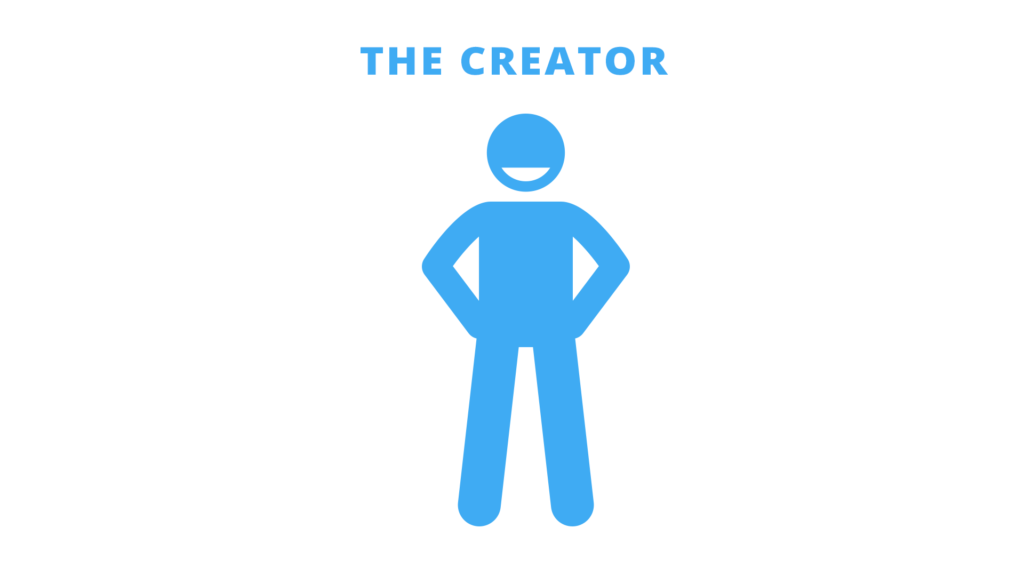
Creators see themselves through a lens of possibility (rather than the weak deficiency identity of the Victim).
They take charge of their lives. And believe in their own potential.
Where the Victim prefers to look back, re-telling the deficiency stories of their past, the Creator looks forward, taking an optimistic approach to life. Click To Tweet
A Creator perspective has three core beliefs:
- I am sufficient, whole and complete
- I am responsible for choosing my responses to life
- I can focus on learning and improving, even when faced with struggles and setbacks
Creators see the options and possibilities. They’re empowered to take charge.
Creators are better able to choose how they want to react in life. they know they are not at the mercy of others’ power over them. Where the Victim says ‘I can’t’, the Creator says ‘I CAN’. Click To Tweet
They believe they can control their own destiny, with the empowering information they have.
Where the Victim says “I can’t”, the Creator says “I can”.
They take responsibility and spend less energy trying to change situations over which they have no control.
They don’t accept situations in defeat, they accept with the knowledge that they can work with what presents itself to be where they want to be.
Creators adapt most effectively. They see options in every situation.
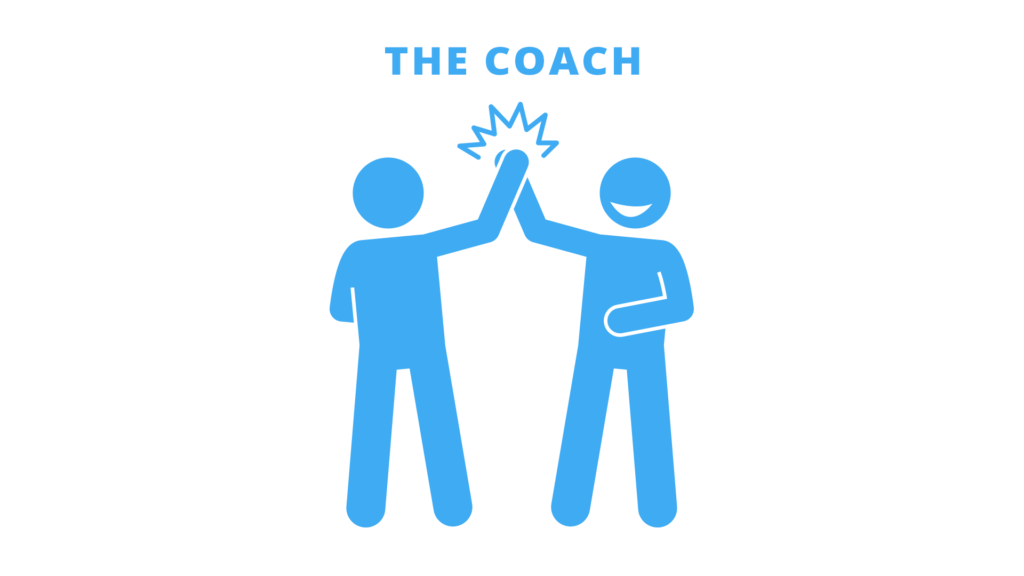
The Coach takes a very different tack when dealing with the Creator, to the Rescuer with the Victim. One of the main differences is listening, instead of telling.
The Coach adopts an approach that asks “How are you/we going to create what you/we want?”
Coaches listen, they are supportive partners in the process.
This is completely opposite to the Rescuer’s approach to the Victim, whose favourite line is “I know best!”. The Rescuer often intervenes without even being asked.
The Coach doesn’t force solutions on the Creator. The Coach knows the Creator can find their own solution, with a little help, perhaps.
If a Coach refrains from jumping in and taking control, it empowers the other person’s creativity. They then become more involved in finding the solution.
The Coach empowers the Victim to see their own potential in a situation.
A Coach perspective has three core beliefs:
- I have faith in the wisdom that lies within
- I trust the discovery process
- I believe in leaving the power with others as they clarify what they want
A Coach helps facilitate a space in which the Creator can find insights.
“With this faith, a Coach allows time for the individual’s unique learning process to unfold, while holding them as ultimately whole and complete.”
A Coach trusts that the process will uncover solutions in time, as and when the Creator is ready for them.
Rather than striving to fix the Victim, they wait, and trust.
They are ready to celebrate progress in the Creator – without the classic Rescuer’s “I know best” approach.
There is a willingness to take the time to understand and find out what’s really going on.
When it becomes clear what needs to happen, a Coach has the ability to help the Creator find their own way forward.
With an inherent intuition, a Coach can play a really helpful role in anticipating obstacles or barriers as they arise to help the Creator navigate them more effectively.
A Coach understands that as there is more clarity, so deeper wisdom generates the energy needed for action. A Coach understands that as more clarity arises there is a deeper wisdom which generates the energy needed for action. Click To Tweet
When Creators are empowered to discover their own way forward – empowered to chart their own path – they develop more creativity for innovative solutions.
The Coach is like a midwife to help birth those “aha” moments in the Creator.
And those breakthroughs create a drive and desire for action.
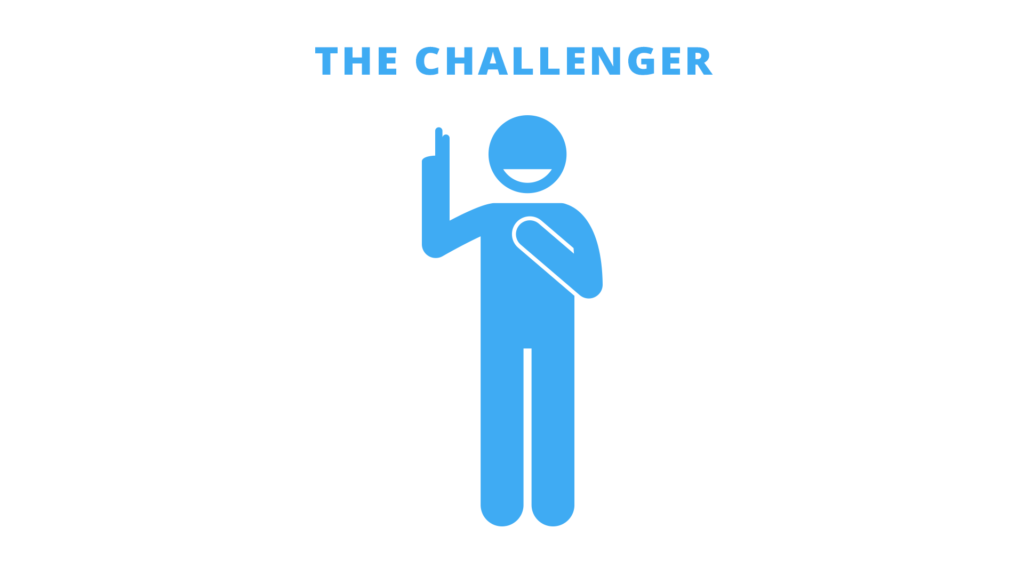
Challengers also have the Creator’s best interests at heart, but, unlike Coaches, they are more likely to speak their mind.
Challengers are committed to a certain perspective and value.
They see themselves as truth-tellers and sometimes say what’s unpopular, but in a way that is very different from how Persecutors tend to intervene.
Challengers focus on the issue, not the person.
So when they speak the truth, it is safe, and this often sparks learning and growth, which are very important for Creators to reach their potential.
Ultimately their involvement inspires Creators to “reach for the highest good.”
A Challenger perspective has three core beliefs:
- Life is about learning and growth – even in the face of “not knowing”
- Given that life is ever-changing and uncertain, I rest in the confidence and conviction of my values
- I tell the truth about current reality, without blame or judgement
Challengers ask themselves, and others: “Given the situation, what can we learn or gain here?”.
Like Coaches they also trust the process. Sometimes they provoke a response, or nudge people to act, to learn and grow.
In the Drama Triangle, Persecutors try to control the chaos, but in the Empowerment Dynamic, a Challenger is comfortable in uncertainty, knowing that they don’t know everything.
For Challengers, it’s all part of the learning process.
The second belief, “I rest in the confidence and conviction of my values”, is really at the heart of the “truth” that a Challenger speaks.
Challengers have a lot of integrity. Staying true to their values, and keeping their word, is a high priority for Challengers. Click To Tweet
It’s not about being right, and they aren’t legalistic, like the Persecutor. So they don’t easily get sucked into the drama.
By taking a stand for what they believe, often amidst chaos and change, they challenge and inspire others to take a stand too.
The Key Difference Between Challengers and Persecutors
The key difference between Challengers and Persecutors is that Challengers state the truth as they see it, without blame or judgement.
Challengers see reality as it is, without judging the person. They don’t take the Persecutor’s “one-up” approach to the Creator – blaming, accusing and belittling.
The issue is not the person.
This doesn’t mean that the Challenger isn’t willing to be vulnerable.
A Persecutor is fearful and desperately trying to hide his own failure and hypocrisy, this makes him attack and deflect attention to protect a perfect façade.
But a Challenger has nothing to hide. He is not pretending to be perfect.
You CAN Stop Playing The Victim
In the Drama Triangle, all three roles are actually victims of that dysfunctional dynamic. Because, ultimately, Rescuers and Persecutors end up as Victims too.
So, for any of those unhealthy roles to shift into new empowering roles, they all need to grow and learn – they all need to become Creators.
And they can all help each other to get there. Each script in the Empowerment Dynamic calls out the best in the other roles.
Just as drama happens when roles switch from Persecutor to Victim to Rescuer, personal growth and strengthened relationship happen when we can switch between the different roles in the Empowerment Dynamic.
To stop playing the Victim so that you can get out of the Drama Triangle means starting to see yourself as a Creator, with the help of those around you.
But it takes hard work to move from the unhealthy co-dependency of the Drama Triangle, into the interdependence of the Empowerment Dynamic.
Getting there takes trust, vulnerability and compassion. Shifting from Victim to Creator is the BEST way to grow… Click To Tweet
Growth is About Allowing Yourself to be Vulnerable
Trust and compassion build in the face of vulnerability.
Brene Brown, well-known shame researcher and author, explains that our purpose in life is connection with others.
Connection gives us meaning.
In contrast to shame, which unravels connection.
Shame says “I am not good enough, thin enough, … rich/tall/funny/pretty/clever … enough. So, in order not to feel the shame of “not being enough,” we hide our true selves from each other.
Shame breeds fear, and living with shame prevents us from truly connecting with people.
We fear that they too will find out we are not enough. So we put up walls and hide our true selves. But when we do have a sense of belonging, we experience courage, compassion and connection.
Vulnerability is the catalyst for belonging, courage, compassion and connection.
Without vulnerability, we will never truly experience belonging, courage, compassion, or connection. How could we? We haven’t shared our true selves. Without the willingness to share our true selves, how can people truly love who we are? Click To Tweet
Where Trust And Compassion Come In
Vulnerability helps us connect through trust and compassion.
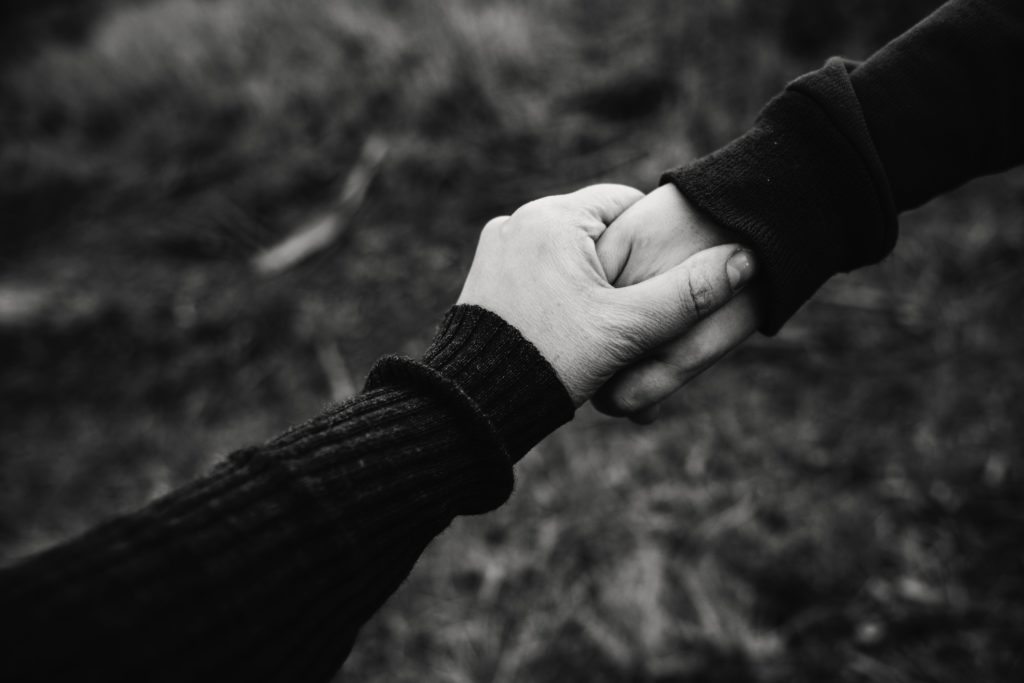 [pic: Kat Jayne, pexels.com]
[pic: Kat Jayne, pexels.com]
Being vulnerable allows belonging, compassion, trust and connection.
When others are brave enough to be vulnerable, we accept them! With open arms. Why? Because we resonate. We know how they feel.
So our compassion grows.
And when they trust us enough to be authentic and show us their true selves, we are moved. We admire them. One of the biggest results of authenticity is trust, so when others are authentic, our trust for them grows too. Click To Tweet
Can you see the double standard we have?
We see our own weaknesses through the lens of shame, yet we are drawn to the vulnerability of others.
And it’s through experiencing their vulnerability that our trust and compassion for them grows. If we can bring ourselves to be vulnerable, it will help others trust us and grow their compassion for us. Being vulnerable requires bravery on our part. Click To Tweet But the trust and compassion necessary to help the other characters in the Drama Triangle pivot into their new empowerment roles, depends on this vulnerability.
Vulnerability is hugely powerful. But…
Before we mistakenly think vulnerability is the silver bullet, there is a cautionary note:
While vulnerability does breed trust and compassion, there needs to be at least some trust to work with before you uncover your deepest darkest self.
No one is suggesting you walk up to strangers and tell them all about your insecurities.
“Vulnerability is based on mutuality and requires boundaries and trust”.
Vulnerability is safe when people have earned the right to see us. And then trust, the by-product of vulnerability, will grow. But you should have a foundation of trust first, no matter how small, on which you can be vulnerable.
Placing undeserved trust in someone, which isn’t met with appropriate compassion, may lead you to be vulnerable in ways that end up hurting you.
If people have betrayed you in the past, be careful.
It doesn’t mean those relationships can’t heal and become healthy, but it does require wisdom to get there.
And, sometimes, in extreme cases, people who aren’t able to relinquish their own unhealthy roles will keep trying to pull you back into the drama again.
Sometimes, the cost of staying in damaging relationships is too high, and it’s wiser to walk away, or put boundaries in place to protect yourself.
Mygrow is an online personal development platform focused on Emotional Intelligence development, a set of skills that make people great at managing themselves and interacting with others.
Developing your EQ so that you can play the part of Creator, Coach or Challenger fits into the module on building personal relationships.
Headline pic: Photo by Matheus Bertelli from Pexels



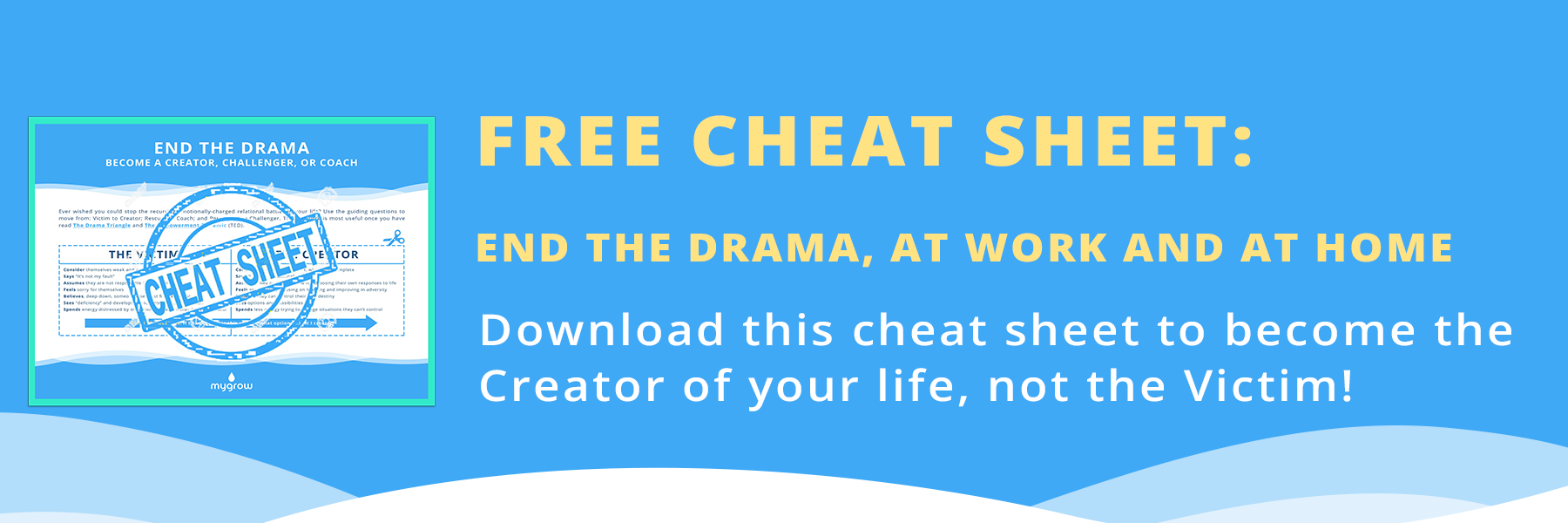
This positive parrelel to the drama triangle is extremely positive and potentially life changing for anyone that utilizes it. Thank you so much for this information.